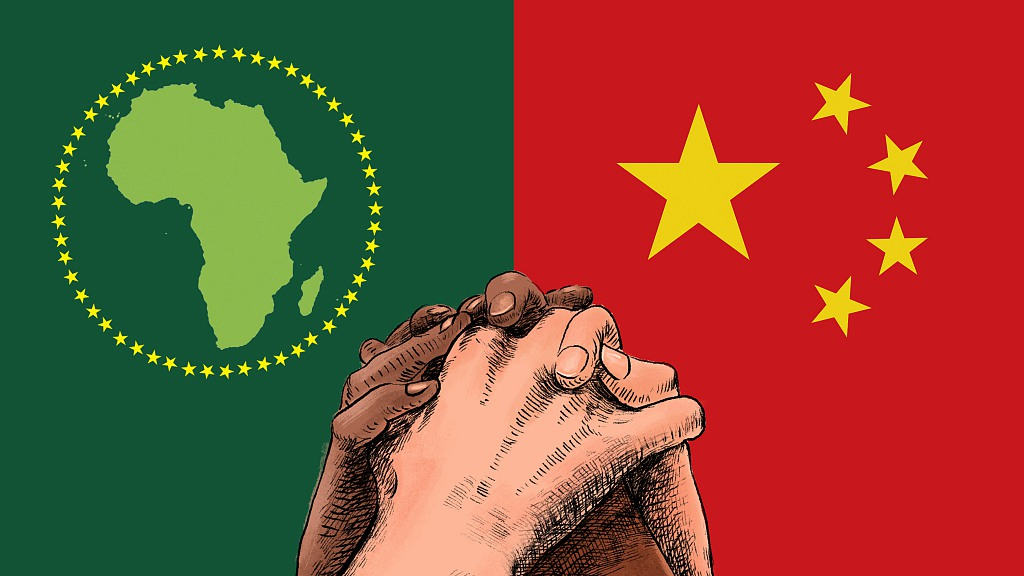
By Dries Velthuizen
African leaders have committed themselves to ending armed conflict on the continent and promoting lasting peace and economic prosperity. This is in keeping with the African Union’s blueprint for the continent. Sadly, though, the leaders’ 2013 pledge to “silence the guns” by 2020 has not been honoured.
Bloody conflicts continue to rage in many parts of Africa. This includes in the Lake Chad Basin, Cabo Delgado province of Mozambique, Gulf of Guinea, Somalia and the Tigray province of Ethiopia. Conflict impedes the continent’s economic development.
According to a 2017 report by Rwandan President Paul Kagame, then chairman of the African Union (AU), the failure to end conflict shows that member States do not take AU’s decisions seriously. This gives the continental body little credibility.
Very little has changed since Kagame’s report. The inadequate response to security crises continues. This is because most of the 55-member States lack the capacity to carry out its mandate. There is also a lack of political will to implement AU’s peace and security programmes. The emphasis, instead, is on respecting the sovereignty of the States.
The African peace and security architecture
The ongoing conflicts indicate that AU’s peace and security architecture is failing to prevent or manage conflict and build peace — despite some progress. The failures extend to the body’s eight regional economic communities.
The architecture consists of the Peace and Security Council, supported by the AU commission, panel of the wise, the continental early warning system, African standby force and the Africa peace fund. The main reason for the failure of the peace and security architecture is organisational dysfunction. This results in an “ineffective response to security crises”.
- Chamisa under fire over US$120K donation
- Mavhunga puts DeMbare into Chibuku quarterfinals
- Pension funds bet on Cabora Bassa oilfields
- Councils defy govt fire tender directive
Keep Reading
My ongoing research into a new paradigm for peace and security in Africa examines how China can help address this weakness.
China’s contribution to peace and security in Africa
China is already contributing to the peace and security objectives of the AU through capacity building for socio-economic development and education for social transformation. It also contributes to peace missions in Africa.
China, using the extensive military knowledge of the People’s Liberation Army, can enhance the AU’s military intervention capacity. This is especially so with regards to the non-combatant developmental approach to post-civil war peace-building, including the implementation of poverty alleviation programmes.
Chinese military assistance to Africa is shaped by the China-Africa Co-operation Beijing Action Plan (2019-21). The plan includes assistance for military, police and counter terrorism activities.
It also caters for the developing the African standby force. The force is supposed to enable the AU to intervene in “grave circumstances” such as genocide.
Military co-operation between China and Africa takes the form of intelligence exchange, military personnel training, commercial arms sales, and regular peace and security forums. China also provides law enforcement training.
Specific military aid includes support to countries in the Sahel region, the Gulf of Aden, the Gulf of Guinea and the Horn of Africa.
China’s development model
The “Chinese model” for development could be a blueprint for modernisation and transformation of African economies. The model includes “going global” to find multilateral solutions to reduce costs and share the burden of development.
China’s new strategy for Africa is to build its soft power. Peace missions, cultural exchanges, educational projects and financing educational infrastructure in Africa are integral to this strategy.
The strategy serves China’s own interests. The creation of secure investment environments benefit its economy. This, while promoting transparent, accountable and rule-based governance in Africa.
China is heavily invested in Africa. In 2020, despite a challenging global market, trade between China and Africa was nearly US$180 billion. Although less than the US$208,7 billion of 2019, China has been Africa’s biggest trading partner for the last 12 years.
Multilateral platforms
On a multilateral level, China’s security co-operation with Africa was boosted by the first China-Africa defence and security forum of June 2018. It focuse on peacekeeping and peace-building missions.
China is building the capacity of the armed forces of several African States as part of bilateral and multilateral arrangements. It maintains strong bilateral relations with South Africa and Rwanda, for example. It also has strategic ties with several countries in North Africa.
China’s current peace and security activities indicate a departure from its erstwhile policy of non-interference, to one that entails post conflict peace-building. This includes socio-economic reconstruction, which is vital for Africa’s development. In this, China’s vast military and developmental experience will play a prominent role.
Although China emphasises a multilateral approach to African peace and stability, it continues to collaborate with individual African States. For instance, most of its East African projects are bilateral intergovernmental or private sector projects.
Word of caution
Given the AU’s capacity challenges in ending or containing deadly conflicts, co-operation with China provides a chance for African States to eradicate insecurity and instability for their own development and prosperity. But, they need to be cautious that their partnership with China doesn’t turn into yet another relationship characterised by dependency and exploitation.











